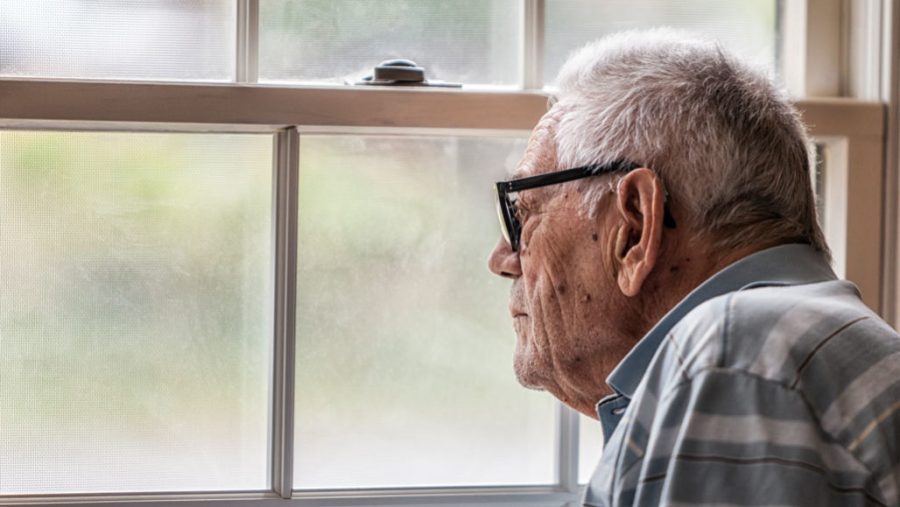The Pandemic: Mental Health in the Face of Uncertainty
The elderly are particularly vulnerable to loneliness, social isolation and other mental health problems that may arise from long-term social distancing during the coronavirus pandemic.
April 1, 2020
Coronavirus has plunged the world into uncertainty and the constant news about the pandemic can feel relentless and overwhelming. As the world is taking increasingly stringent social distancing measures to keep people apart from both the spread and physical worries in response to the accelerating pandemic, mental health experts are worried that the negligence of important mental health care during this troubling and expanding crisis will come with a cost.
With local and national governmental agencies rolling out social distancing measures to combat the spread, many Americans have been forced to change their lifestyles. A growing number of states have banned all nonessential activities, which includes everything except grocery shopping, work, and medical emergencies, and has asked residents to stay home. Across the country, colleges, schools, and businesses alike have transitioned entirely online, stores and restaurants are closed and nursing homes are barring visitors in an effort to protect and safeguard the community’s health.
But “for some people, a lack of social connectedness feels as impactful as not eating,” says Joshua Morganstein, a psychiatrist and disaster mental health expert at the Uniformed Services University in Bethesda, Md. According to Psychology Today, socializing is essential to a healthy human lifestyle. It renews a sense of purpose and connection to existence, and provides deep psychological support. Of course, the relationships must be essentially positive.
“We are social beings. We like to connect and touch and be close to people, and we’ve had to change our behavior, which can create a feeling of isolation,” Patricia Thortnon, PhD, a licensed psychologist in New York City, told Healthline.
Lori Burkett, a licensed clinical psychologist from Colonial Behavioral Health, said feelings of depression and loneliness can severely increase during times of isolation. Even with connection through the internet, there can still be an underlying feeling of anxiety that overwhelms individuals.
Lab studies conducted by Julianne Holt-Lunstad, a research psychologist at Brigham Young University, and colleagues have found a correlation between perceived social connectedness and stress responses. “Just knowing that you have someone you can count on if needed is enough to dampen some of those responses even if [that person is] not physically present,” Holt-Lunstad says.
Although there is not a great deal of research related to the psychological affect of social distancing, researchers in the March 14 Lancet, a weekly peer-reviewed general medical journal, evaluated 24 studies looking at the psychological outcomes of people who were quarantined during outbreaks of SARS, H1N1 flu, Ebola, and other infectious diseases in the early 2000s. The results indicated that many quarantined individuals experienced mental health problems, including stress, insomnia, emotional exhaustion and substance abuse. For instance, one study compared quarantined and non-quarantined individuals during an equine influenza outbreak. From a total of 2,760 quarantined people, 34 percent, reported high levels of psychological distress, which can indicate mental health problems such as anxiety and depression, during the outbreak compared with 12 percent of non-quarantined individuals.
So how can we protect our mental health? Here is a brief list from the Center for Disease Control (CDC) :
- Take breaks from watching, reading, or listening to news stories, including social media. Hearing about the pandemic repeatedly can be upsetting.
- Take care of your body. Take deep breaths, stretch, or meditate. Try to eat healthy, well-balanced meals, exercise regularly, get plenty of sleep, and avoid alcohol and drugs.
- Make time to unwind. Try to do some other activities you might enjoy such as painting.
- Connect with others. Talk with people you trust about your concerns and how you are feeling.
With the awareness of these mental health risks, we can work towards coping with this challenging situation and reduce the potential impact on our mental health with creative strategies. Perhaps we will also emerge from this crisis with a better appreciation and respect for the people around us.


